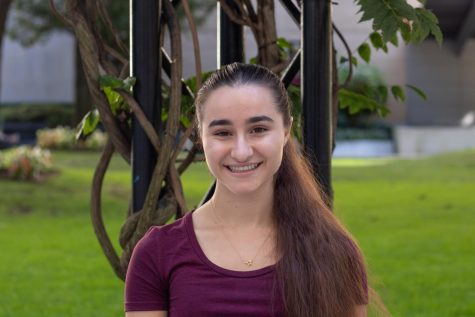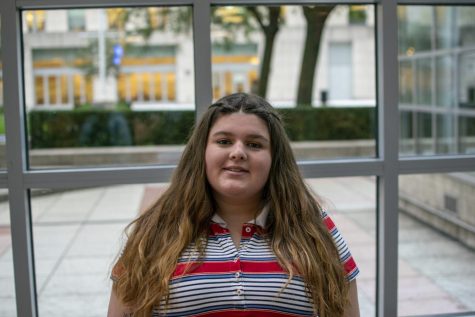Fordham’s Financial Steps and Missteps During the Pandemic
Even with the partial refund, commuter students feel they “got the short end of the stick” with transitioning online.
May 13, 2020
As the outbreak of the novel coronavirus continues to disrupt employment, education and the economy, finances are a point of contention around the world.
Fordham University is a large nonprofit with 735 full-time instructors, 437 tenured faculty and 833 part-time instructors, in addition to student workers, administration and contract workers. University President Rev. Joseph M. McShane, S.J., said in a University Update on May 5 that the university is committed to “staving off layoffs” in these dire circumstances.
Funding Refunds
The university aimed to relieve students who may be experiencing financial hardships by issuing refunds for the latter half of the spring semester.
On March 31, after students were encouraged to move out and the university moved to an online format, Fordham issued a partial refund to its students. According to an email sent by the Office of Student Financial Services, the reductions would be applied to “room, board and selected fees by approximately 50% for the spring 2020 semester.”
For the 2019-20 academic year at Fordham, tuition for a full-time undergraduate student is $52,980, without taking into account scholarships or financial aid. Housing costs for the 2019-2020 academic year at Lincoln Center can range from $12,175 to $19,895 and meal rates range from $6,262 to $7,375 depending on the student’s specific housing and meal plan.
Then there are additional fees: a $75 fee for residence hall communication, a $252 general fee and $247 technology fee, each per term. Depending on the student’s program, affiliated college or courses for the semester, other fees might be reimbursed as well.
Collectively, these costs add up to a minimum of $72,565 for the year. Residential students received a quarter of room and board, and all students received a “selected fees” refund as compensation for the lost half of the semester.
Room and board and other student-funded auxiliary revenues accounted for a total of $88.3 million, or 13.6%, of the university’s proposed budget for 2020. Based on this number, The Observer estimates the school refunded around $20 million in room and board costs and other student fees. This return of tens of millions of dollars to students was not previously anticipated and had been budgeted towards other university expenses.
Many students are also facing financial challenges in the aftermath of Fordham’s move to an online format.
One Fordham student filed a lawsuit against the university claiming that the new remote learning conditions are not comparable to in person classes. The plaintiff, Kareem Hassan, Fordham College at Rose Hill ’21, claims that online classes “are subpar in practically every aspect,” in the lawsuit.
Similarly, a Change.org petition created by the students running the Instagram meme account @lc_sinners that also urged for tuition refunds gained over 1,000 students’ signatures.
“I hope Fordham will consider a small tuition refund across the board,” said Kaitlyn Smith, Fordham College at Lincoln Center (FCLC) ’20. “As proud Rams, we are all doing our best to adapt to online learning and squeeze what we can out of the Spring 2020 semester. However, the COVID-19 crisis has stolen the pulp from our experiences and inflicted much of the student body (and their families) with unforeseen hardship.”
Commuters, who at minimum would pay $53,978 per year — without the added costs for lab and college specific fees — would have received as little as $249.
“I am a single mom whose child’s schooling and childcare have also been paused during this pandemic,” one anonymous graduate student said. “There should be a partial refund for students’ tuition given the hardships presented by the pandemic and the fact that remote learning has less overhead costs for the university and does not fully replace in-person learning.”
For commuter students, who don’t have the same expenses for room and board and housing fees, the refund was said to be insufficient, according to an anonymous commuter from the Gabelli School of Business at Fordham.
“When you compare the commuters’ refunds to the residents’, commuters definitely got the short end of the stick,” the student said. “I feel that I’ve invested more in my education, commuting costs included, than I got in return,” they said.
Another commuter, Marzana Mutee, FCLC ’21, is from Queens and was not as troubled by the amount of money she was refunded. As a student receiving aid from the Higher Education Opportunity Program, she feels grateful that her academic costs are not at the forefront of her concerns.
“Since I have a scholarship that essentially covers everything, even if I didn’t receive the check from Fordham I wouldn’t have noticed,” Mutee said. “I didn’t even expect to get a check from Fordham, but I actually received more than I expected.”
Enrollment and Endowments
According to an email released by the Office of the President on May 4, Fordham has already started making spending cuts in order to offset the refund loss.
“(W)e took a number of measures: we instituted a freeze on discretionary spending; a freeze on all University-sponsored travel; cut all funds earmarked for Commencement and end-of-year ceremonies; instituted a freeze on hiring until the end of the fiscal year; and cancelled a number of University events, including the annual Founder’s Dinner, Jubilee, and other alumni events.”
Fordham also has to tackle the expected decrease in enrollment, which is projected to be about 12% lower than fall 2019, according to the Office of the President.
The administration is planning for situations in which enrollment may drop due to concern of being exposed to the virus, financial hardships caused by the coronavirus, or travel difficulties and bans that are currently in place.
A significant portion of the budget is the student-raised tuition and fees. The net tuition makes up 79.3% of the budget, and it directly correlates to the number of students enrolled. A downturn in enrollment means a downturn in the total amount of tuition collected.
Questions have been raised about Fordham being too tuition-dependent in the past. A report by the Middle States Visitation Team (of the Middle States Commission on Higher Education) highlighted Fordham’s need to diversify its revenue streams — specifically criticizing its dependence on student-raised funds, which accounted for over 90% of its income in 2016.
Steve Raymar, associate professor and area chair in the Gabelli School of Business, addressed his concerns over enrollment regarding graduate students. “With the graduate business program, there’s logical fears of lower enrollment because of international students having difficulty getting to the United States. That, more or less, affects the whole school-wide budget.”
Fordham faces heavy blockades on using the school’s endowment — which was valued at $733,516,000 in 2019 — to counter these missing funds. Endowment funds are usually deemed for a specific use by the donor, such as funding a scholarship for low-income students from a certain area. Even if money is allowed to be withdrawn, an ABC News article details, only a certain percentage is allocated, and it is the return on the investments of those funds themselves that can be used.
Government Aid
In response to the coronavirus, the U.S. government issued aid to colleges and universities through the Coronavirus Aid, Relief and Economic Security (CARES) Act. Fordham is set to receive over $8.1 million in aid, with roughly $4 million allocated for students.
The Higher Education Emergency Relief section of the CARES Act funds institutions in order to provide emergency relief to students during the pandemic. Through doing this, students receive aid from their college, not the Department of Education, giving institutions the power to determine how grants will be calculated and distributed to students.
The CARES Act numbers were released publically, leading students to question the locations of the funds. According to Bob Howe, assistant vice president of communications, as of April 30, the university has not received the CARES Act funds and is following up with the Department of Education.
Correction: A previous print version of this article mistakenly included commuter students in room and board refund calculations. It has been updated to reflect a more precise estimation based on annual student-funded auxiliary revenues.


















Nyckole Lopez • May 15, 2020 at 6:08 pm
In response to … “Another commuter, Marzana Mutee, FCLC ’21, is from Queens and was not as troubled by the amount of money she was refunded. As a student receiving aid from the Higher Education Opportunity Program, she feels grateful that her academic costs are not at the forefront of her concerns.
“Since I have a scholarship that essentially covers everything, even if I didn’t receive the check from Fordham I wouldn’t have noticed,” Mutee said. “I didn’t even expect to get a check from Fordham, but I actually received more than I expected.”
Do not let this one experience speak for everyone in the Higher Education Opportunity Program. So many of us in HEOP are STRUGGLING. I have definitely noticed the amount, and it was not enough for so many of our livelihoods. The scholarship is selective and does not cover everything for everyone, so many of us still need financial help and are left dry. Despite some people being okay because they do have everything covered and this refund was an extra help, it is not like that for everyone in HEOP. Please do not let this create the narrative that everyone in HEOP or has scholarship is well off. We put so much into this school.
Another note, Fordham University and everyone else, please give more respect and aid to your commuters. Especially if they are not in HEOP or have a scholarship. They put more into their education more than any of us and have no type of financial aid or assurance.